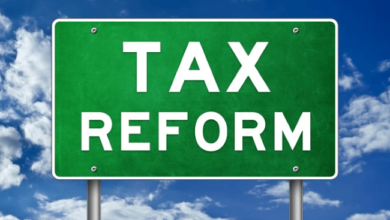NIHOTOUR: Exploring the hospitality, tourism sectors for economic development

The National Institute for Hospitality and Tourism (NIHOTOUR) was established in 1988 as a result of a tripartite agreement signed in 1987 between the United Nations Development Programme (UNDP), International Labour Organisation (ILO), and the Federal Government of Nigeria which was signed in 1987.
The Institute serves as the apex government institution for hospitality, travel and tourism training in Nigeria. Presently the Institute is a parastatal under the Federal Ministry of Information and Culture.
The mandate of the Institute includes providing a platform for human capital development in the Hospitality and Tourism industry including the award of Diploma’s and Certificates.
It will also certify and register qualified personnel in the Hospitality, Travel and Tourism Sector and regulating training programmes of Hospitality, Travel and Tourism Training Institutions.
It serves as the Hospitality, Travel and Tourism Sector Skills Council (SSC) for delivery of National Skills Qualification Framework (NSQF) as well as conducting and publishing research work for the advancement of the Hospitality, Travel and Tourism industry.
The NIHOTOUR has put in motion machinery for the application of digital technology in its skill acquisition training and capacity development delivery services.
At a recent outing, the Director-General of NIHOTOUR, Alhaji Nura Sani Kangiwa, said in keeping pace with modern trends in the ease of doing business, the institute under his watch, is set to leverage on digital technology to deliver on its core mandate of providing training in hospitality and travel tourism skill acquisition and public enlightenment.
The Director-General said he would continue to partner with digital technology service providers so as to deploy their high internet band wave services to achieve the desired upgrade of the Institute’s training services via virtual, e-learning as well as distance learning particularly in the face of the COVID-19 pandemic and the entrenchment of non-pharmaceutical protocols to stem the upsurge in the spread of the disease.
Also speaking at the inauguration of the Lagos Marriott Hotel Ikeja, the NIHOTOUR boss expressed the institute’s readiness to work with other hospitality and tourism establishments for capacity development and to bridge the requisite skills-gap in their operations.
He also revealed that NIHOTOUR would partner with investors in the hospitality sector to ensure they have a return on their investments as they provide direct and indirect employment to Nigerians.
Kangiwa said: “as a matter of fact, the report of a recent survey on Domestic Tourism in Lagos State, conducted by the Federal Ministry of Information and Culture, in partnership with the National Bureau of Statistics (NBS) revealed that Tourism contributed 16.86 per cent to GDP of Lagos State in 2017, the value of N4.6 trillion.
“In 2018 it was 17.40 per cent, valued at N5.5trillion, in nominal terms; and in 2019, the contribution of tourism to GDP in Lagos was 15.80, valued at N6.2trillion.
“More so, in terms of Employment, the survey further revealed that Tourism contributed 9.42 per cent in 2017, representing 596,104 jobs; 9.93 per cent in 2018, representing 634,707 jobs and rose to 10.92 per cent in 2019, representing 705,119 jobs.”
In a write up about tourism potentials in Nigeria, Proshare intelligent investing, stated that “some developing and developing countries such as Morocco, Egypt, England and Poland have used tourism to boost their economy, and Nigeria can follow suit as tourism can be used to revive the part of the economy that COVID-19 subdued. This can only be achieved by curtailing insecurity, increasing government expenditure to tourism and diversification from traditional tourist attractions of game reserves and national parks.
In the year 2019, tourism contributed $1.5 billion to the Nigerian economy, which was scarcely 0.3 per cent of the total GDP.
In 2020 this value dropped, largely thanks to COVID-19. Yet as the Secretary-General of the United Nations World Tourism Organization has observed, Nigeria has the potential to be one of the world’s best tourist destinations.
Tourism presents economic, social and technological opportunities for Nigeria. Economically, it serves as a channel for foreign reserves and investment in the economy, which by extension, leads to GDP growth and economic diversification. Socially, tourism serves to promote tolerance.
READ ALSO:https://brandeconomy.com.ng/u-s-sanctions-on-xinjiang-threat-to-africas-economy-ccs/
In Nigeria, an increase in tourism could be a uniting force in an otherwise fractured country. As UN Secretary General Antonio Guterres stated “tourism can… [bring] people together. Tourism can promote solidarity and trust – crucial ingredients in advancing the global cooperation that is so urgently needed at this time.”
NIHOTOUR’s training centres across the country are a veritable tool for Kangiwa to exploit to retool the service providers for the huge expectations of the sector in diversifying the economy and providing the much needed employment for the teeming youths.
As an expert in the industry, Kangiwa would do well to use his wealth of experience to provide world class skills and training for personnel of the industry.
Similarly, all stakeholders in the executive, legislative and judicial arms of government must give the needed support and encouragement to NIHOTOUR to succeed in its onerous task of becoming a core sector in the economic diversification programme of the President Muhammadu Buhari-led administration.
Credit: Ismail Abdulaziz, News Agency of Nigeria (NAN)












